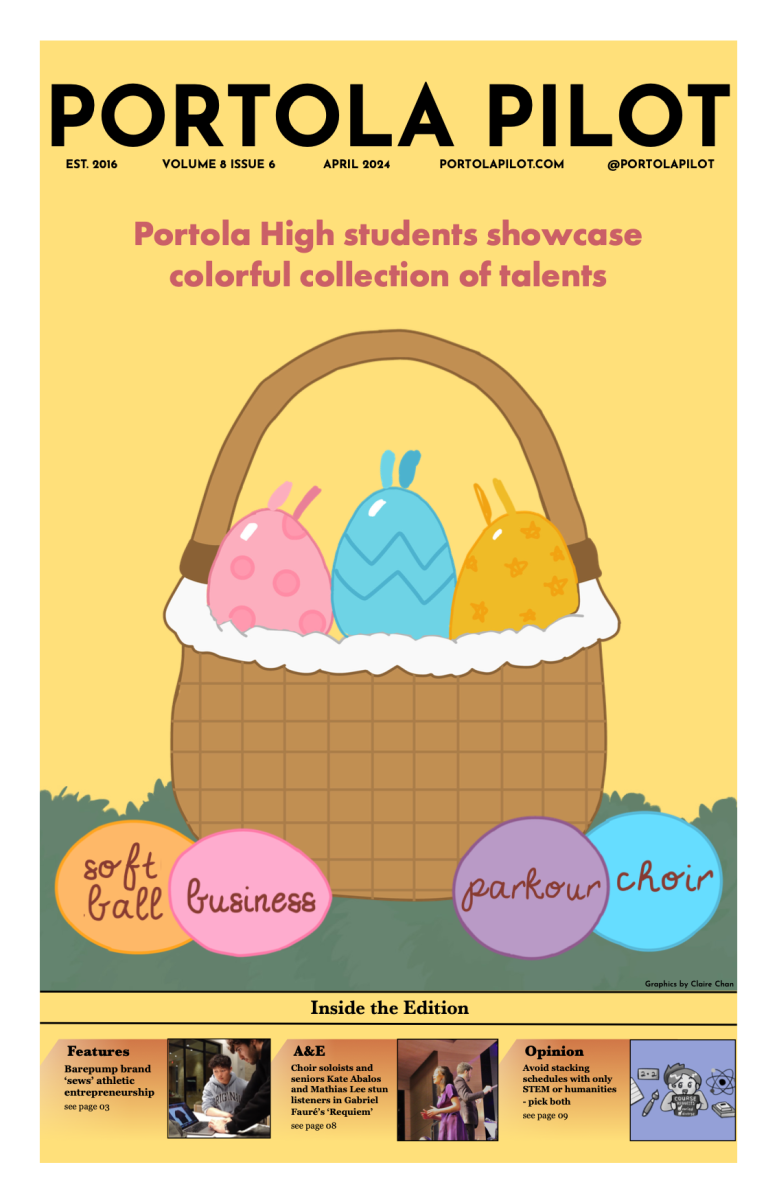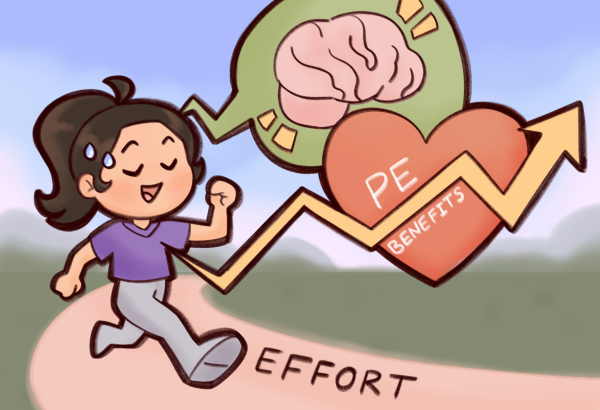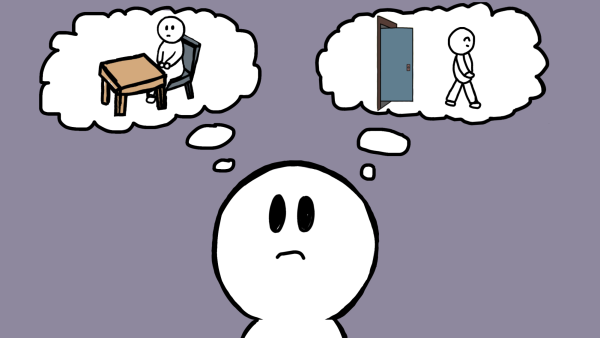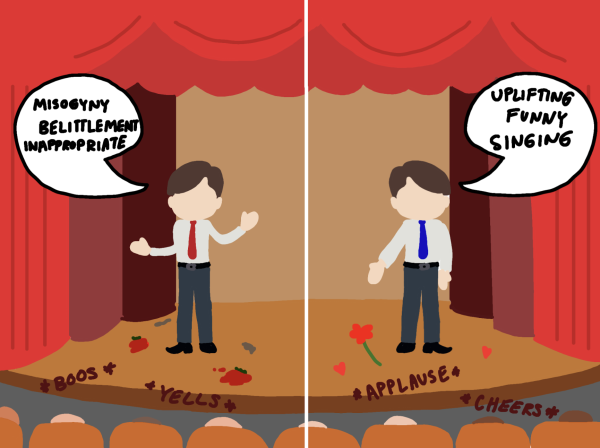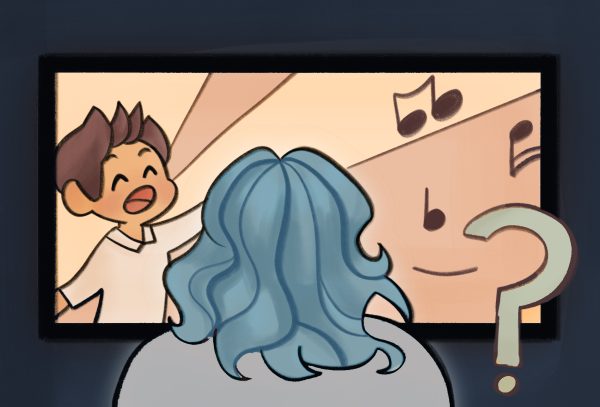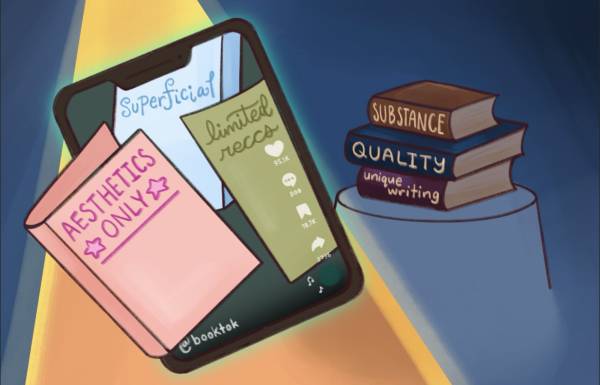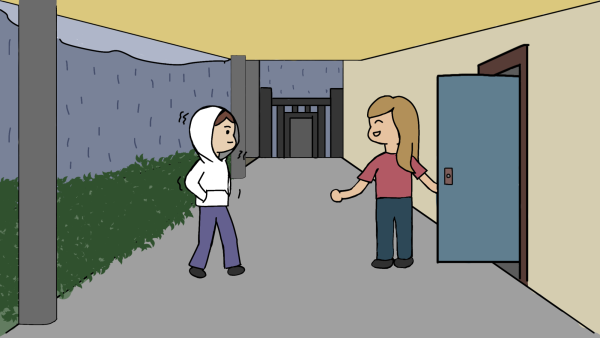Staff Editorial: Kicking Littering to the Curb, a Solution to the Trash Problem on Campus
May 31, 2019
Cardboard pizza boxes litter a corner of the Student Union. Around a trash can lie empty trays with spilled Pick Up Stix chicken or fruit from students trying to toss them into the trash and missing. Tables are strewn with Dorito packages, ice cream wrappers and fruit snacks.
This is the state that the Student Union – and many other parts of campus – is left in at the end of lunch every day. And when students return the next day to find it clean, they forget that the trash they neglected to discard is left for others to clean up.
The overabundance of trash in the Student Union after lunch has not only upset the custodial staff but the administration and teachers as well. The littering problem, which is most prominent in the Student Union though can be seen across campus on tables and in classrooms, has gotten worse with students carelessly leaving food on the floors and tables. This has taken a large toll on the custodians, who have to take care of many other responsibilities – setting up for events, maintaining restrooms, helping administrators – but are hindered because they have to dedicate time to picking up trash.
“It affects us by giving us a lot more work, and we don’t have time to set up sometimes for some of the activities or events going on,” custodian Noe Belmudez said.
Administration and the custodial staff have taken disciplinary measures for some students who have repeatedly left trash. Individual disciplines include detentions and a call home; however, the administration has alerted the student body that they will shut down the union if the problem persists.
“I can’t believe some of them [students] would be doing this in their own homes and getting away with it. I just can’t believe that any parent would allow that,” campus control assistant Kathy Elgohary said. “If you’re in athletics or band or dance or… whatever you’re involved in here, our custodial staff takes care of everybody. So, the more time they have to spend picking up after the kids eating lunch, the less time they are going to have to help support all the other activities, which, I think everybody agrees, is really important.”
It is clear that disciplinary measures and gentle reminders to throw away trash are ineffective ways to solve the growing litter problem. However, making cleaning up trash an entire-school event is one possible way to get students of all grades and interests involved in cleaning up our campus. For example, the administration can implement a system where certain clubs dealing with the environment can elect student leaders and help guide the process five minute before lunch ends. Although it may receive backlash on a short-term basis, change is always confronted with resistance. Change is not easy, but it is necessary for progress to be made.
“I feel like it would be really helpful if the students in our school participated in a school-wide trash day. People could form teams to see who can find the most trash at our school. After, whoever collected the most trash would get a prize like donuts, cake, brownies or even boba,” junior and nature club vice president Madison Lam said. “I think if people are shown that picking up trash could be a fun and exciting activity, then they would do it more often. It’s a good way to encourage healthy competition while also benefiting the school.”
Although cleaning up after oneself and throwing away trash should be common courtesy, incentivizing trash clean-up may help encourage positive behavior among students. Hosting a bi-weekly or monthly trash clean-up day would ensure that our campus stays clean and will help students understand how widespread our trash problem has become.
As a very tech savvy school, our news networks and online messaging services, such as Portola News Network, Portolapp, Remind Messaging system and ourselves should regularly publish public service announcements reminding students to pick up their trash. By repeatedly seeing these digital notifications on their personal devices, students will become more aware of the large quantities of trash they leave behind, thus spurring them to take action.
Our school campus is just as important as our own households, and we should treat it with the same respect and care. To many, school is seen solely as a place to learn and socialize; however, none of that would be possible without the massive efforts of the custodial staff who keep our surroundings pristine. It is time that we, as students, step up, throw our littering problem in the trash and play a bigger role in preserving our campus for generations to come.





